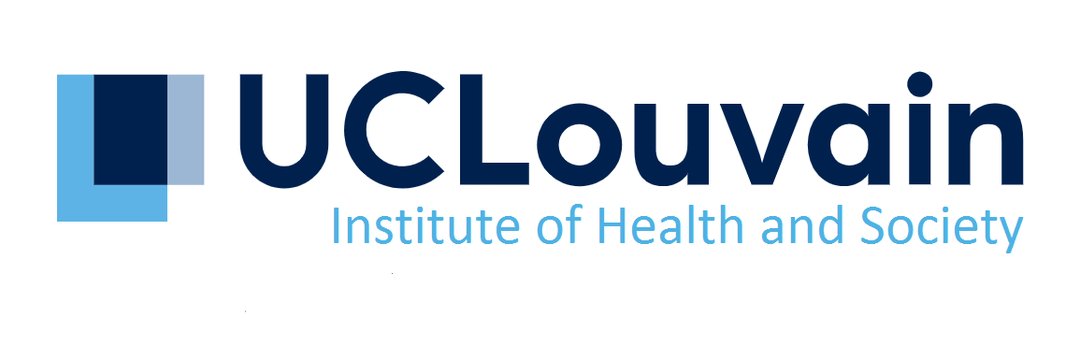Past projects
Mortality estimates in complex emergencies |
||
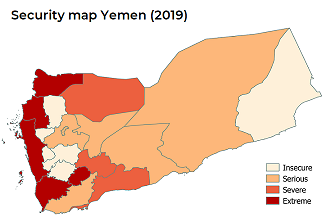 |
Funding | |
| Duration | October, 2022 | |
| Summary |
Mortality is one of the major key indicators used in assessing the level of needs in conflict-affected areas. This helps to better target humanitarian aid to the most vulnerable population. Recently, the global humanitarian sector has shown a great interest in finding improved ways to produce robust estimates of mortality in countries severely affected by armed conflicts. The project aims to employ the use of Bayesian methods in understanding the evolution of mortality in crisis-affected by utilization of data from small-scale surveys. This research will contribute towards improving the tools that health providers use, enhancing the understanding of mortality patterns and better targeting aid for the populations at risk. For more information, contact Thomas Jideofor Ogbu
|
|
DAMOCLES (Understanding and Modelling Compound Climate and Weather Events) |
||
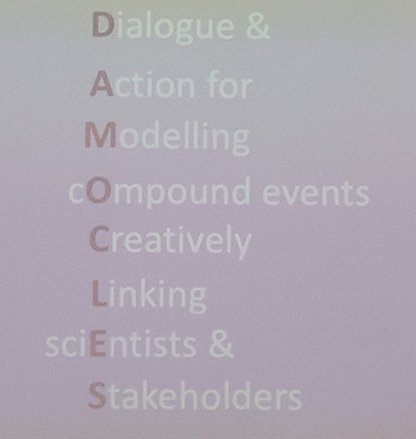 |
Funding | European Cooperation in Science and Technology (COST) |
| Duration | May, 2018 to September, 2022 | |
| Summary |
DAMOCLES is a project funded by the European Cooperation in Science and Technology (COST). Compound Events are high-impact events whose causes or effects show a complex combination of factors and pose major challenges to risk assessment and management. Current climate and impact modelling efforts are very limited in their ability to model Compound Events, making it difficult to design appropriate adaptation strategies. DAMOCLES will (a) identify key process and variable combinations underpinning Compound Events; (b) describe the available statistical methods for modelling dependence in time, space, and between multiple variables; (c) identify data requirements needed to document, understand, and simulate Compound Events, and (d) propose an analysis framework to improve the assessment of Compound Events.
For more information, contact Joris van Loenhout. |
|
SCORCH: Supportive Risk Awareness and Communication to Reduce impact of Cross-Border Heatwaves |
||
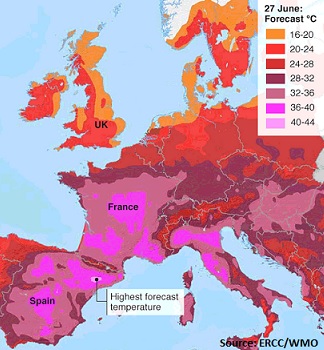 |
Funding | EU ; Directorate-General for European Civil Protection and Humanitarian Aid Operations (ECHO) |
| Duration | February, 2019 to September, 2021 | |
| Summary |
Extreme temperatures are characterized as climatological hazards, this includes heat and cold waves, and extreme winter conditions. In the EU and neighboring countries, especially heat waves are considered a problem and are known to cause a rise in both morbidity and mortality. Heat waves are largely cross-border phenomena and ideally require a collective response and preparedness in order to reduce the associated costs and health effects while mitigating the impact on communities. Evidence-based risk communication is an appropriate strategy in this regard, particularly when tailored to vulnerable populations (e.g. elderly) and territories (e.g. cities). Such prevention measures would be a major contribution to disaster risk reduction (DRR) in urban settings. The overall objective of this project is to reduce the health impact of heat waves on vulnerable, urban populations through improved risk communication strategies. These strategies will be informed by existing EU plans and guidelines, and by surveys on the risk perception and behavior of urban populations in EU neighborhood countries. In addition, we aim to foster a culture of prevention and cooperation across countries. For more information, contact Joris van Loenhout or Kirsten Vanderplanken . |
|
Improving Hospital Resilience to Disasters: Lessons from Nepal |
||
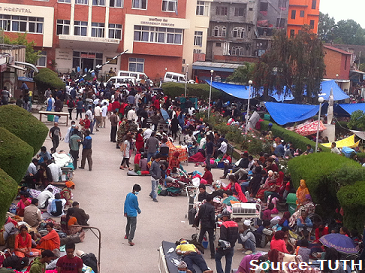 |
Funding | UCLouvain – Fonds Spéciaux de la Recherche; EACEA; USAID/OFDA |
| Duration | July, 2017 to February, 2021 | |
| Summary |
Hospitals are the most visible function of health systems after large disasters and are critical to minimize loss of life and morbidity. The concept of “resilient hospitals” has been increasingly recognized as a critical element of disaster reduction, being highlighted in priorities 1, 3, and 4 of the Sendai Framework for Action 2015-2030. However, critical efforts are still needed to understand the challenges disasters cause to hospitals in terms of patient profiles, disruptions in health services, and organizational aspects. This project investigates the impact of a high-magnitude earthquake in a tertiary hospital in Nepal, and explores its post-disaster resilience mechanisms. It will unleash new understandings of hospital disaster resilience and will provide a solid evidence-base for the global community to improve disaster preparedness and response. For more information, contact Maria Rodrigues Leal Moitinho De Almeida
|
|
BRIGAID: BRIdging the GAp for Innovations in Disaster resilience |
||
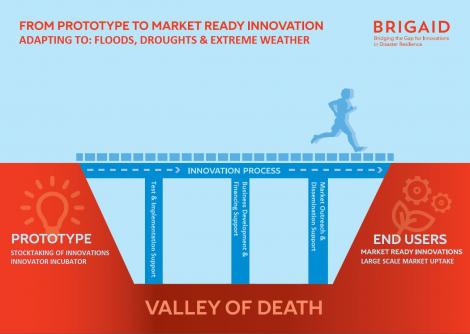 |
Funding | H2020 EU Framework Programme for Research and Innovation |
| Duration | May, 2016 to September, 2020 | |
| Summary |
The objective of the BRIGAID project is to provide structural support for innovations in climate adaptation by developing a combination of testing and implementation methods, as well as market and investment/financing tools, that are expected to become a standard for climate adaptation innovations. CRED works on identifying, selecting and improving technological and non-technological innovations designed to protect or mitigate the impact of extreme weather events. CRED is also involved in the development of a comprehensive, standardised methodology (the Test and Implementation Framework, or TIF) for testing and implementing climate adaptation measures, in particular to assess their potential to mitigate risks from floods, droughts, and extreme weather. For more information, contact Joris van Loenhout. |
|
STENTOR |
||
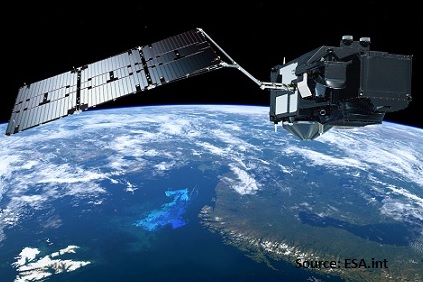 |
Funding | BELSPO: Research Programme For Earth Observation Stereo III |
| Duration | September, 2019 to August, 2020 | |
| Summary |
Due to recent technological advancements, Earth Observation satellite systems have increasingly been used for planning and coordination in humanitarian operations. They can support decision making and situational awareness in remote, inaccessible, or dangerous environments, thereby providing invaluable insight for the humanitarian sector. The STENTOR project aims to study how satellite data are currently used in disaster and conflict settings. Its specificity is the combination of a traditional systematic review of the scientific literature supported by a review of actual uses of satellite data by humanitarian organizations. For more information, contact Rémi Froment. |
|
Earth Systems Data Cube (ESDC) |
||
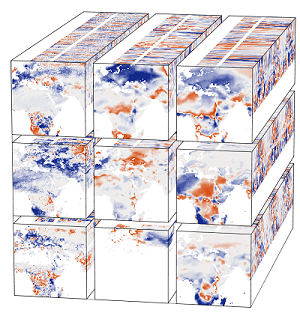 |
Funding | European Space Agency (ESA) |
| Duration | May, 2018 to September, 2019 | |
| Summary |
The European Space Agency (ESA) is developing a wide range of data products relevant to detecting changes in terrestrial ecosystems. Today the scientific community is confronted with an unprecedented variety of long-term monitoring data. Different relevant programmes are the Climate Change Initiative (CCI) and the Data User Element (DUE). The Sentinel missions will provide additional essential data streams to monitor the relevant processes. CRED will be a scientific partner and integrate EM-DAT data into the Cube. |
|
DEPP Innovation Lab |
||
 |
Funding | UK Aid |
| Duration | May, 2017 to April, 2019 | |
| Summary |
The Disasters and Emergencies Preparedness Programme (DEPP) Innovation Labs is jointly managed by Start and CDAC Networks. It is a two-year programme, funded by UK Aid, which has set up a network of labs to identify and support the development of innovative solutions to disaster preparedness. The CRED is a consortium partner of the "Safer Communities Innovation Lab" in Bangladesh. It seeks to examine and improve the direct impact of the built environment on emergencies. The aim to find and support ideas that build safer communities and ensures ideas are led by the local community. It is based out of Korail, Bangladesh’s largest slum. The lab is hosted by Dhaka Community Hospital Trust, a Bangladeshi community hospital and medical college and a consortium of partners. Other consortium partners include: SEEDS Technical Services; University of New South Wales; and the Asian Disaster Reduction and Response Network, a civil society network of 56 national NGOs from across the Asian region. |
|
SNOWBALL - Lower the impact of aggravating factors in crisis situations thanks to adaptative foresight and decision-support tools |
||
 |
Funding | European Union – 7th Framework program |
| Duration | January, 2014 to January, 2017 | |
| Summary |
The overall objective of the Snowball project is to increase preparedness, and enhance mitigation capacities related to amplifying hazards in large disasters. Snowball carries out analyses on cascading effects and develops methods to anticipate them. The consortium includes 11 expert partners from 8 European countries. Within Snowball, CRED plays a major role in the identification and analysis of past crises with cascading effects, realized on the basis of its Emergency Events Database (EM-DAT). At a later stage, CRED will be deeply involved in the testing of the simulation tool in the context of real crises involving cascading effects. For more information, contact Alizee Vanderveken. |
|

